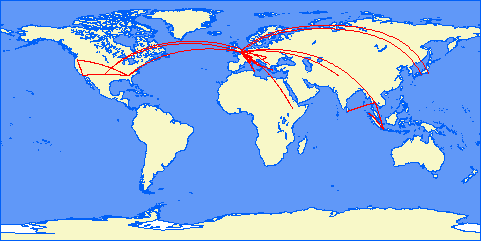Well, not exactly famine… but a lot of people in Tajikistan are probably quite hungry, considering how poor the country is. I’ve talked about how NGOs should be blogging more here; now from Steve Buckley at Christian Aid:
“We recently tried a public weblog during a recent trip to Central Asia. The idea was to get away from official accounts of life in the region and try to bring back real time, emotionally charged, stories from the field - mainly for staff but also for supporters, friends and family. The blog turned out to be an unprecedented success for us achieving 6,000 readers from a standing start at the beginning of the year… and also making the site the most visited web site by Christian Aid staff.
“We’re pretty pleased with this first public effort and hope to continue the concept for some other (but not all) staff trips. You can read the blog here - http://nightingalesangatwcc.typepad.com - and note that entries will continue to be posted for a few days more.
“We’re also using web logs as a way to stay in touch with staff who are out on secondment to other organisations, or even those who have left Christian Aid for pastures new. All part of an emerging ‘Orphans’ scheme that tries to keep staff involved with Christian Aid after they have left paid employment with us.
“Most exciting of all we’re also starting to use weblogs internally for team reporting, replacing more traditional after-the-event reports. Early days at the moment as we’re still rolling out our SharePoint system but the signs are encouraging.”
More NGOs are starting to blog from the field, which is great - even though this is more from a development organisation, these perspectives are vital. The next step… I’d like to see Christian Aid use these blogs to give national staff in their country programmes a platform to communicate with Christian Aid’s supporters - and to represent their work within their own country as well.
In other blogging news: I took part in an IRC chat on Tuesday with some of the big names in the blogging / digital divide / online disaster response - names such as Rebecca McKinnon, Dina Mehta, Andy Carvin, etc. The chat also included staff from Alertnet, the Reuter Foundation online news service for humanitarian organisations, and was a discussion about how blogging, wikis, and other services can be organised more effectively to support disaster response. It will be interesting to see where the discussion goes; I’ll update on it as the Wiki gets going.
